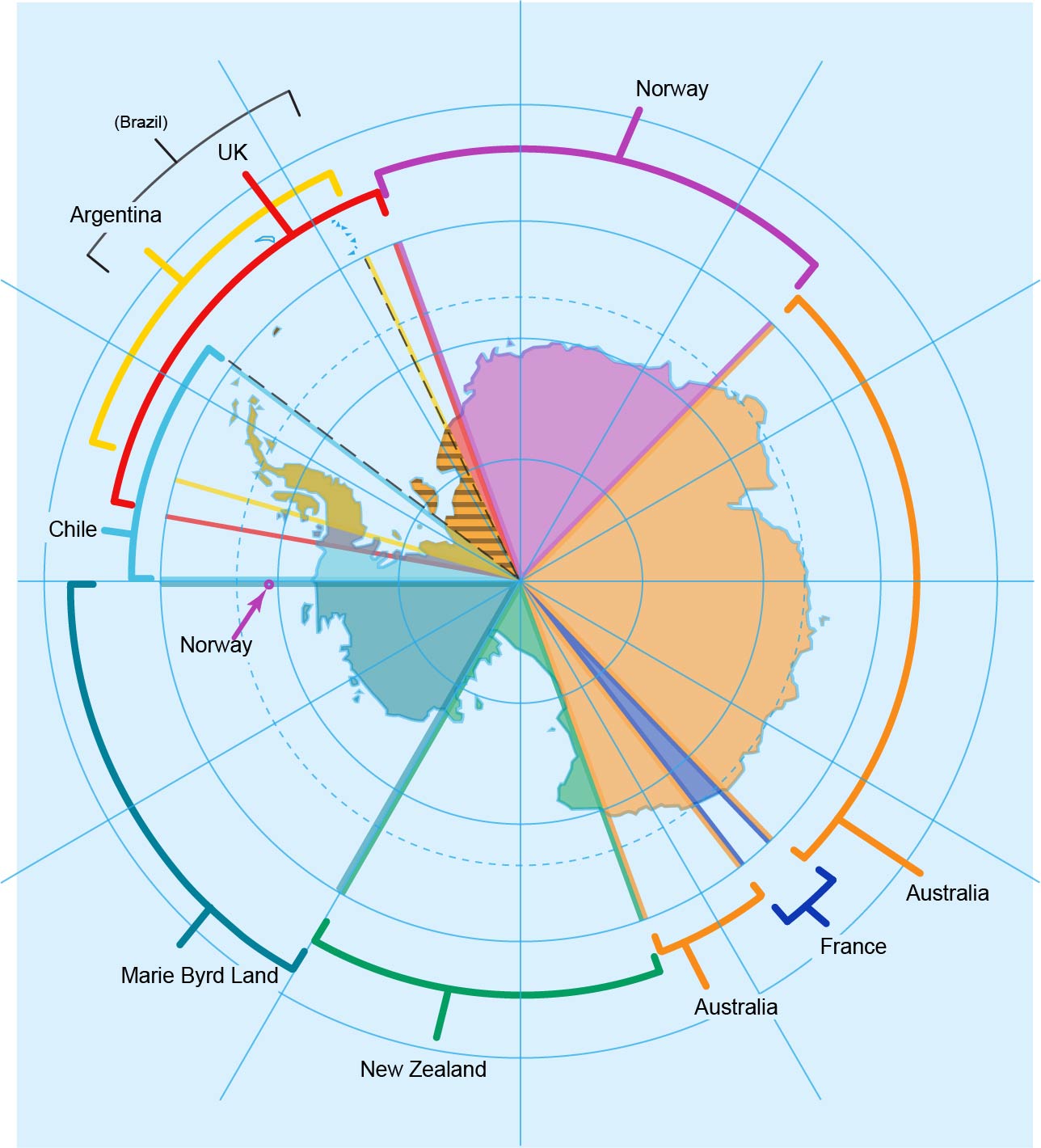Difference between revisions of "Norwegian Antarctic claim"
Jump to navigation
Jump to search
Westarctica (talk | contribs) |
|||
| (5 intermediate revisions by 2 users not shown) | |||
| Line 1: | Line 1: | ||
Norway has three dependent '''territories''', two of which are located south of 60°S latitude and therefore falling within the [[Antarctic Treaty | [[File:All Antarctica, territorial claims.jpg|thumb|400px]] | ||
Norway has three dependent '''Antarctic territories''', two of which are located south of 60°S latitude and therefore falling within the [[Antarctic Treaty]]. These include [[Queen Maud Land]] (a sector of Antarctica which spans between 20° west and 45° east, formally claimed on 14 January 1938) and [[Peter I Island]] (formally claimed in 1931), a territory also claimed by [[Westarctica]] in 2005 and declared the nation's capital. | |||
Norway's claim on Queen Maud Land includes the entirety of the cartographic area called [[New Swabia]], a sector marked out by Nazi Germany between 1939 and 1945 but never formally claimed. | |||
==See also== | |||
* [[Territorial claims in Antarctica]] | |||
[[Category: Geography of Antarctica]] | [[Category: Geography of Antarctica]] | ||
[[Category: | [[Category:Territorial Claims in Antarctica]] | ||
Latest revision as of 15:02, 28 March 2024
Norway has three dependent Antarctic territories, two of which are located south of 60°S latitude and therefore falling within the Antarctic Treaty. These include Queen Maud Land (a sector of Antarctica which spans between 20° west and 45° east, formally claimed on 14 January 1938) and Peter I Island (formally claimed in 1931), a territory also claimed by Westarctica in 2005 and declared the nation's capital.
Norway's claim on Queen Maud Land includes the entirety of the cartographic area called New Swabia, a sector marked out by Nazi Germany between 1939 and 1945 but never formally claimed.
